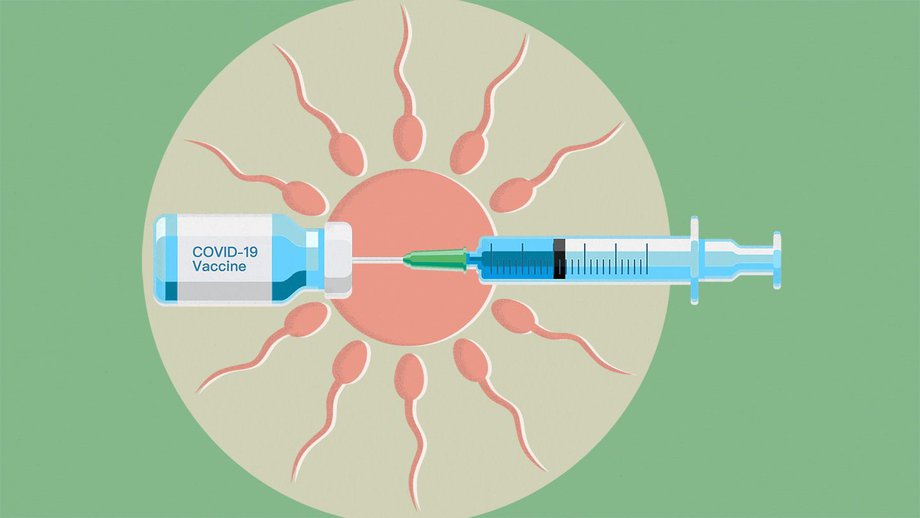Can Viruses Affect Fertility and Reproductive Health?

This article examines the potential impact of viruses on fertility and reproductive health. It aims to understand the link between viral infections and the disruption of the reproductive system.
By identifying common viruses that can affect fertility, this article explores how these infections can lead to long-term effects on reproductive health.
Additionally, it discusses strategies for preventing viral infections to maintain optimal reproductive health.
Lastly, it addresses the importance of seeking treatment for viral infections and potential fertility restoration.
Key Takeaways
- Viral infections can directly damage reproductive organs and disrupt their normal functioning, leading to impaired fertility.
- Inflammation caused by viral infections can affect gamete production and quality, indirectly impacting fertility.
- Viral infections can cause hormonal imbalances and disrupt the menstrual cycle, further affecting fertility.
- Certain viruses can lead to congenital abnormalities in offspring when a pregnant woman is infected, emphasizing the importance of understanding the relationship between viral infections and infertility for preventive measures and treatments.
The Impact of Viruses on Fertility
The potential impact of viruses on fertility has been the subject of significant research and investigation in recent years. Understanding viral mechanisms and managing viral infections are crucial in assessing their effects on fertility.
Viruses have been found to affect fertility through various mechanisms. Some viruses, such as human immunodeficiency virus (HIV) and cytomegalovirus (CMV), can directly infect the reproductive organs and interfere with their normal functioning.
Other viruses, like Zika virus, can cause congenital abnormalities in offspring when a pregnant woman is infected. Additionally, viral infections can lead to systemic inflammation and immune dysregulation, which can indirectly impact fertility.
Managing viral infections is essential in minimizing their potential adverse effects on fertility. This involves timely diagnosis, appropriate treatment, and preventive measures such as vaccination and safe sexual practices.
Understanding the Link Between Viral Infections and Reproductive Health
Viruses have been extensively studied for their potential impact on fertility and reproductive health. Understanding the link between viral infections and these aspects of human health is crucial in order to develop effective preventive measures and treatments.
This discussion will explore the relationship between viruses and infertility, the impact of viral infections on the reproductive system, and strategies for preventing viral transmission in the context of reproductive health.
Viruses and Infertility
One aspect to consider regarding the impact of viruses on fertility and reproductive health is the potential relationship between viral infections and infertility. Viruses can have a direct or indirect influence on fertility by affecting the reproductive organs, disrupting hormonal balance, or causing immune system dysfunction.
Here are three important factors to consider when discussing the viral link to infertility:
- Viral infections can directly damage the reproductive organs, such as the ovaries or testes, leading to impaired fertility.
- Some viruses can cause inflammation in the reproductive system, affecting the production and quality of gametes, which can result in infertility.
- Viral infections can also impact fertility indirectly by causing hormonal imbalances, disrupting the menstrual cycle, or affecting the release of mature eggs.
Understanding the intricate relationship between viral infections and infertility is crucial for developing effective strategies for fertility restoration and management.
Impact on Reproductive System
An important consideration when examining the impact of viral infections on the reproductive system is the potential disruption of hormonal balance, which can have detrimental effects on fertility. Viruses can directly affect the reproductive system by targeting specific cells and tissues involved in reproduction. For example, some viruses can invade the placenta and cause damage, leading to complications in pregnancy. Additionally, viral infections can also affect sperm quality, potentially impairing fertility. Research has shown that certain viruses, such as the human papillomavirus (HPV) and the herpes simplex virus (HSV), can negatively impact sperm parameters, including motility and morphology. These viral effects on sperm quality can reduce the chances of successful fertilization and conception. Understanding the viral impact on pregnancy and sperm quality is crucial for developing effective strategies to prevent and manage reproductive health issues associated with viral infections.
| Viral Impact on Pregnancy | Viral Effects on Sperm Quality |
|---|---|
| Invasion of the placenta | Reduction in sperm motility |
| Complications in pregnancy | Impaired sperm morphology |
| Increased risk of miscarriage | Decreased fertilization potential |
Preventing Viral Transmission
Preventing the transmission of viral infections requires the implementation of effective strategies that target the modes of transmission and reduce the risk of viral spread. This is particularly important in maintaining reproductive health, as certain viruses can have detrimental effects on fertility and reproductive function.
To prevent viral transmission and protect reproductive health, the following strategies can be implemented:
- Vaccination: Immunization against specific viruses can significantly reduce the risk of infection and subsequent transmission. Vaccines are available for several viral infections that can impact reproductive health, such as human papillomavirus (HPV) and hepatitis B.
- Safe sexual practices: Consistently practicing safe sex, such as using barrier methods like condoms, can help prevent the transmission of sexually transmitted viral infections like HIV and herpes simplex virus.
- Hygiene and sanitation: Practicing good hygiene, such as regular handwashing, can help prevent the transmission of viral infections that can impact reproductive health, including cytomegalovirus and rubella.
Common Viruses That Can Affect Fertility
Several common viruses have been identified as potential factors that can adversely affect fertility and reproductive health. Viral infections can have detrimental effects on fertility treatment outcomes and overall reproductive health.
For instance, human papillomavirus (HPV) has been associated with reduced fertility rates, as it can affect sperm quality and motility.
Additionally, sexually transmitted infections such as herpes simplex virus (HSV) and cytomegalovirus (CMV) have been linked to infertility and adverse pregnancy outcomes. These viral infections can lead to inflammation, immune system dysregulation, and damage to reproductive tissues.
Moreover, certain viral infections can also pose risks during fertility treatments, such as in vitro fertilization (IVF), as they can interfere with embryo implantation and increase the risk of miscarriage.
Therefore, it is crucial to consider the potential impact of viral infections on fertility and reproductive health when providing fertility treatment.
How Viruses Can Disrupt the Reproductive System
Viral infections have the potential to disrupt the normal functioning of the reproductive system. These infections can lead to various consequences on reproductive health.
- Viral transmission prevention: The prevention of viral transmission is crucial in minimizing the impact on reproductive health. Practices such as safe sexual behaviors, vaccination, and proper hygiene can play a significant role in reducing the risk of viral infections.
- Viral infections and reproductive health consequences: Viruses can directly affect the reproductive organs, leading to conditions such as pelvic inflammatory disease, testicular damage, and infertility. Additionally, viral infections can indirectly impact fertility by causing systemic inflammation and immune dysfunction that affect reproductive processes.
- Long-term implications: Some viral infections, such as human papillomavirus (HPV) and herpes simplex virus (HSV), can have long-term consequences on reproductive health, including an increased risk of certain cancers and chronic pelvic pain.
Understanding the potential disruptions caused by viral infections on the reproductive system is essential for implementing effective prevention strategies and providing appropriate healthcare for individuals seeking to protect their reproductive health.
The Long-Term Effects of Viral Infections on Fertility
This discussion aims to explore the potential viral impact on fertility, the consequences for reproductive health, and the long-term implications for fertility.
By examining the ways in which viruses can disrupt the reproductive system, we can gain insight into the potential mechanisms through which viral infections may affect fertility.
Additionally, understanding the long-term consequences of viral infections on fertility can inform strategies for prevention and intervention in order to mitigate the potential negative effects on reproductive health.
Viral Impact on Fertility
Studies have demonstrated a potential correlation between viral infections and adverse effects on fertility and reproductive health. Viral transmission prevention plays a crucial role in safeguarding individuals seeking fertility treatment.
The presence of viruses can be detrimental to fertility and reproductive health, leading to complications such as infertility, miscarriages, and pregnancy complications. Viral infections, including human immunodeficiency virus (HIV), human papillomavirus (HPV), and herpes simplex virus (HSV), can be transmitted through sexual contact, blood transfusions, or from an infected mother to her child during pregnancy or childbirth.
Therefore, it is imperative to implement effective viral transmission prevention strategies, such as practicing safe sex, using barrier methods, and undergoing regular screenings for viral infections. Additionally, individuals seeking fertility treatment should be screened for viral infections to minimize the risk of transmitting the virus to their partners or potential offspring.
Reproductive Health Consequences
In exploring the impact of viruses on fertility, it is crucial to consider the broader reproductive health consequences that these infections can have.
Viral infections can lead to various reproductive health issues, which can have long-term fertility implications. These consequences may include damage to the reproductive organs, inflammation, and hormonal imbalances.
For instance, certain viral infections, such as human papillomavirus (HPV), can cause cervical abnormalities and increase the risk of developing cervical cancer. Additionally, viral infections like mumps can cause orchitis, which can result in testicular damage and potentially lead to impaired sperm production.
Moreover, viruses such as Zika and rubella can have detrimental effects on fetal development, leading to congenital abnormalities and infertility in affected individuals.
Understanding these reproductive health consequences is vital for developing effective strategies to prevent and manage viral infections and their long-term impact on fertility.
Long-Term Fertility Implications
Considering the broader implications for fertility, it is important to examine the potential long-term consequences of viral infections on the reproductive system. Viruses can have significant impacts on fertility by affecting various aspects of reproductive health. Here are some key points to consider:
- Preventing viral transmission: To minimize the risk of viral infections, it is crucial to adopt preventive measures such as practicing safe sex, maintaining good hygiene, and getting vaccinated if available.
- Seeking fertility restoration: Individuals who experience fertility issues following a viral infection may seek fertility restoration options, including assisted reproductive technologies such as in vitro fertilization (IVF) or fertility preservation techniques like egg or sperm freezing.
- Psychological support: Dealing with the long-term fertility implications of viral infections can be emotionally challenging. Therefore, providing adequate psychological support to individuals and couples is essential to help them cope with the psychological distress associated with fertility concerns.
Preventing Viral Infections for Optimal Reproductive Health
To optimize reproductive health, it is important to implement preventive measures against viral infections. Preventing viral transmission is crucial in maintaining optimal reproductive health. Viral infections such as human papillomavirus (HPV), herpes simplex virus (HSV), and cytomegalovirus (CMV) can have detrimental effects on fertility and reproductive health.
These viruses can be transmitted through sexual contact or from mother to child during pregnancy or childbirth. Implementing safe sexual practices, such as using barrier methods like condoms, can reduce the risk of viral transmission.
Additionally, seeking treatment for viral infections is vital in preventing complications that can affect reproductive health. Early diagnosis and appropriate medical intervention can help manage viral infections and minimize their impact on fertility and overall reproductive well-being.
Seeking Treatment for Viral Infections and Fertility Restoration
Seeking timely and appropriate medical intervention for viral infections is crucial in managing the infections and restoring optimal reproductive function.
When it comes to viral infections that can affect fertility and reproductive health, there are several treatment options available. These treatment options may include antiviral medications, supportive care, and lifestyle modifications.
Fertility preservation techniques, such as cryopreservation of sperm, eggs, or embryos, can also be considered in cases where the infection or its treatment may have a negative impact on fertility.
It is important to consult with a healthcare provider who specializes in reproductive medicine to discuss the best treatment options and fertility preservation strategies for individuals or couples affected by viral infections.
Frequently Asked Questions
How Can I Prevent Viral Infections That May Affect My Fertility?
Prevention strategies for viral infections that may affect fertility include maintaining a healthy lifestyle, practicing good hygiene, avoiding contact with infected individuals, and ensuring adequate immune system support through vaccination and proper nutrition.
What Are the Long-Term Effects of Viral Infections on Fertility?
Long-term consequences of viral infections can include damage to reproductive organs and impairment of fertility. Viruses may affect the normal functioning of these organs, leading to potential difficulties in conceiving or maintaining a healthy pregnancy.
Are There Specific Viruses That Are More Likely to Affect Fertility?
The influence of viral factors on reproductive health complications is an area of ongoing research. While specific viruses have been associated with fertility issues, further studies are needed to determine causal relationships and explore potential mechanisms of action.
Is Seeking Treatment for Viral Infections Important for Fertility Restoration?
The importance of early diagnosis and treatment for viral infections in relation to fertility restoration is crucial. Viral infections can significantly impact reproductive organs and hormones, highlighting the need for prompt medical intervention.
Can Viruses Affect Both Male and Female Fertility Equally?
Gender disparities in the impact of viral infections on fertility and reproductive health are a topic of concern. The role of vaccination in protecting fertility from viral infections is an important area for further research and understanding.









